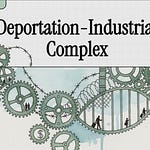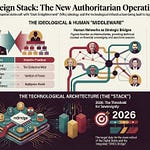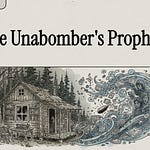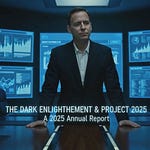Introduction: A Trump Tower in the Heart of the USSR
In the summer of 1987, Donald Trump—then a 41-year-old real estate magnate—embarked on a journey that has since become the subject of intense geopolitical speculation. Invited by Soviet officials during the height of Gorbachev’s Glasnost era, Trump traveled to Moscow under circumstances that, in retrospect, read less like a business venture and more like a carefully staged operation of Cold War influence.
This wasn’t just a hotel scouting trip. It may have been the first overture in a long, quiet game.
🛬 A VIP Arrival with Hidden Intentions
Trump's invitation came directly from Soviet ambassador Yuri Dubinin. The goal? Explore building a luxury Trump Tower in Moscow. But the logistics were arranged by InTourist—the Soviet state agency widely recognized as a front for the KGB.
Upon his arrival, Trump and his then-wife Ivana were lavished with attention: banquets, site tours, and accommodations in the famed Lenin Suite of the National Hotel—known to be thoroughly bugged. Intelligence analysts believe every word, gesture, and private moment of Trump’s stay was recorded and dissected.
The Soviets weren’t evaluating a construction plan. They were profiling a man.
🎯 Why Trump?
KGB methodology prioritized targets with wealth, ego, insecurity, and ambition. Trump, at the time, checked every box:
Obsessed with fame and global branding
Financially strained, potentially vulnerable
Politically unformed, yet publicly vocal
Receptive to flattery and spectacle
Trump was not viewed as just a developer—but as a long-game asset. One who might, over time, internalize and repeat pro-Kremlin narratives out of self-interest, not coercion.
💰 The Post-Moscow Transformation
Soon after returning from Moscow, Trump’s faltering empire saw a curious reversal. Sixteen banks offered him massive credit extensions. He purchased the Plaza Hotel for a record-breaking $407.5 million—without negotiation.
Within weeks, he dropped nearly $100,000 on full-page newspaper ads criticizing U.S. foreign policy—particularly targeting NATO allies. The themes of the ad mirrored classic Soviet propaganda, casting America’s alliances as parasitic burdens.
Coincidence? Or the early fruits of influence?
🕵️♂️ The Czech Connection and a Decade of Surveillance
Trump’s marriage to Ivana Zelnicek, a citizen of communist Czechoslovakia, had already placed him under the watchful eye of Eastern bloc intelligence. Her father, Milos Zelnicek, was an informant for the STB (Czech secret police), which routinely shared intelligence with the KGB.
Throughout the 1980s, they compiled files on Trump—his finances, social ties, and political leanings. They documented his emotional needs, vanity, and emerging public ambitions.
When he arrived in Moscow in '87, the Soviets didn’t meet a stranger. They met a fully profiled subject.
🧠 From Cultivation to Convergence
Multiple former KGB officers—now in the West—have since claimed Trump was groomed as a potential asset. They describe a process of:
Target identification (ego, influence)
Flattery and grooming (VIP treatment, praise)
Surveillance and profiling
Ideological feeding (anti-NATO, pro-isolationism)
Engagement through opportunity (dangling deals)
The goal wasn’t classic espionage. It was cultivation: creating an influencer whose ego and beliefs naturally aligned with Kremlin interests.
📉 The Evidence Dilemma: Smoke Without Fire?
While the narrative is compelling, no hard proof has ever surfaced—no documents, recordings, or formal acknowledgment that Trump was an active agent.
The Mueller Report cited numerous Russia-Trump connections, but found no criminal conspiracy.
Thus, the story remains a mosaic—of suggestive events, insider claims, and behavioral patterns that refuse to be neatly dismissed.
⚠️ Why It Still Matters
This is not just a Trump story. It’s a case study in Cold War intelligence strategy, psychological profiling, and how empires wage silent influence campaigns across decades.
It forces us to ask:
Where is the line between opportunist and operative?
How does power reshape memory, alliances, and truth?
In the age of influence, who pulls the strings?
Conclusion: The Cultivation Question
Was Donald Trump deliberately shaped by Soviet interests—or merely a man whose ambitions aligned too neatly with a foreign adversary’s goals?
Either way, his 1987 Moscow trip reminds us that in the Cold War, influence was a long game. And sometimes, the most useful assets are the ones who never knew they were being played.
Written for Information-Warfare Magazine: because influence is power, and narrative is a battlefield.










